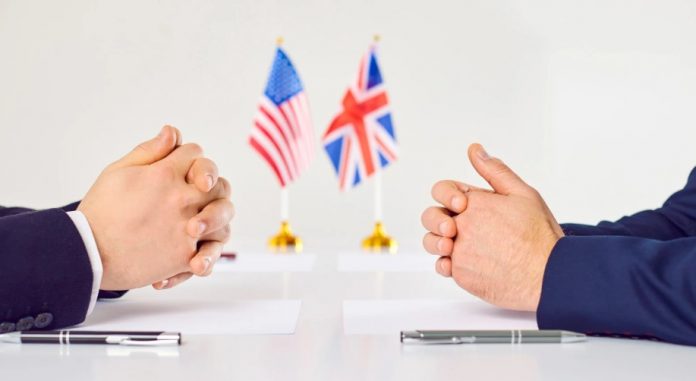The United Kingdom is at a pivotal stage in its economic development. In the aftermath of its departure from the European Union, the country is reshaping its role within the global market.
At the center of this transition are new trade agreements, which present both significant opportunities and potential challenges.
This article examines how these agreements may influence the UK economy by 2025.
New Trade Deals: What They Mean for the UK Economy?
Expanding Global Reach

The UK is forging trade deals with nations around the world. These agreements aim to reduce tariffs, expand market access, and encourage investments.
Countries such as Australia, India, and members of the Comprehensive and Progressive Agreement for Trans-Pacific Partnership (CPTPP) are key targets. These efforts could boost exports and create new opportunities for British businesses.
For traders, these developments hold significant implications. Industries like fintech, which include sectors such as CFD trading, may particularly benefit.
Reduced trade barriers can improve market access, offering traders more choices and wider operations. Financial instruments linked to international indices may also experience growth due to stronger trade ties.
Strengthening Key Industries
Some industries will gain more than others from new trade deals. Manufacturing, agriculture, and the financial sector stand to benefit.
Enhanced access to raw materials and overseas markets could reduce costs for manufacturers and improve export opportunities. Similarly, agriculture could gain better market entry, particularly in places where British produce has a competitive edge.
The UK financial sector could attract increased foreign capital. Trade agreements that establish clear legal frameworks support investor confidence. This may lead to more robust economic activity in key hubs such as London and Manchester.
In industries such as pharmaceuticals and automotive manufacturing, intellectual property clauses within agreements play a critical role in safeguarding innovation. These protections are essential for fostering investment in research and development.
Challenges and Risks
While opportunities abound, trade deals also bring complexities. The agriculture sector faces increased competition from imported goods.
This is particularly true when agreements reduce tariffs on agricultural imports. Smaller British farmers may find it harder to compete on price. Supporting these groups will likely require government intervention.
Likewise, regulatory standards play a critical role in shaping trade deals. The UK must balance securing access to global markets while maintaining high domestic standards.
Diverging from EU regulations, for example, could limit certain exports to Europe. At the same time, aligning too much with international norms may spark backlash from domestic industries.
Trade relationships are also vulnerable to political factors. Changes in governments or tensions between trading partners could disrupt agreements.
Unforeseen events such as economic downturns or climate-related challenges could further complicate trade projections.
Impacts on Employment
New trade agreements are expected to impact the UK labour market, with potential job creation, particularly in export-oriented industries.
Manufacturing, finance, and technology may see increased demand for skilled workers. Training programs are essential in addressing this need.
By enhancing skill sets, workers can effectively adapt to emerging industries and opportunities.
However, job displacement may occur in other areas. Sectors facing stiff competition from imports could struggle. Retail and small-scale agriculture are particularly vulnerable. Policymakers will need to plan for this transition.
Safeguards such as retraining programmes and financial support might reduce the impact of job losses.
Boosting Foreign Investments

Trade deals can boost foreign direct investment (FDI). Closer trade ties create confidence among international investors. Nations with established trade agreements are often seen as stable, reliable markets.
For example, securing deals with growing economies such as India or Brazil may open new avenues for strategic collaborations.
Investment usually leads to infrastructure growth and job creation. Increased FDI in the UK could also spur advancements in technology and innovation. This, in turn, could help maintain the UK’s competitive advantage on the global stage.
A Measured Economic Outlook
By 2026, the full effects of the UK’s new trade policy will still be unfolding. Nevertheless, some early patterns are likely to emerge. For instance, initial boosts in exports may set the tone for long-term growth. Tariff reductions and better market access could make British goods more competitive abroad.
Still, not all sectors will experience gains at the same pace. Industries adapting well to the new trade landscape will flourish.
Others may struggle, particularly those unprepared for global competition. Supporting these industries will require adaptive and inclusive policies.
Finally, geopolitical stability will be crucial. Trade deals depend on stable relationships between nations.
Uncertainty in global politics could hinder the progress of such agreements. Addressing these risks early will help pave the way for sustained economic growth.
Final Thoughts
The UK’s drive to secure new trade deals represents a watershed moment for its economy. By 2025, these agreements could influence multiple aspects of economic life.
From exports and investments to job creation and industry competitiveness, the ripple effects will be far-reaching.
Success will depend on careful implementation and strong policymaking. If managed well, trade deals hold enormous potential to shape a more resilient and dynamic UK economy in the years ahead.


































